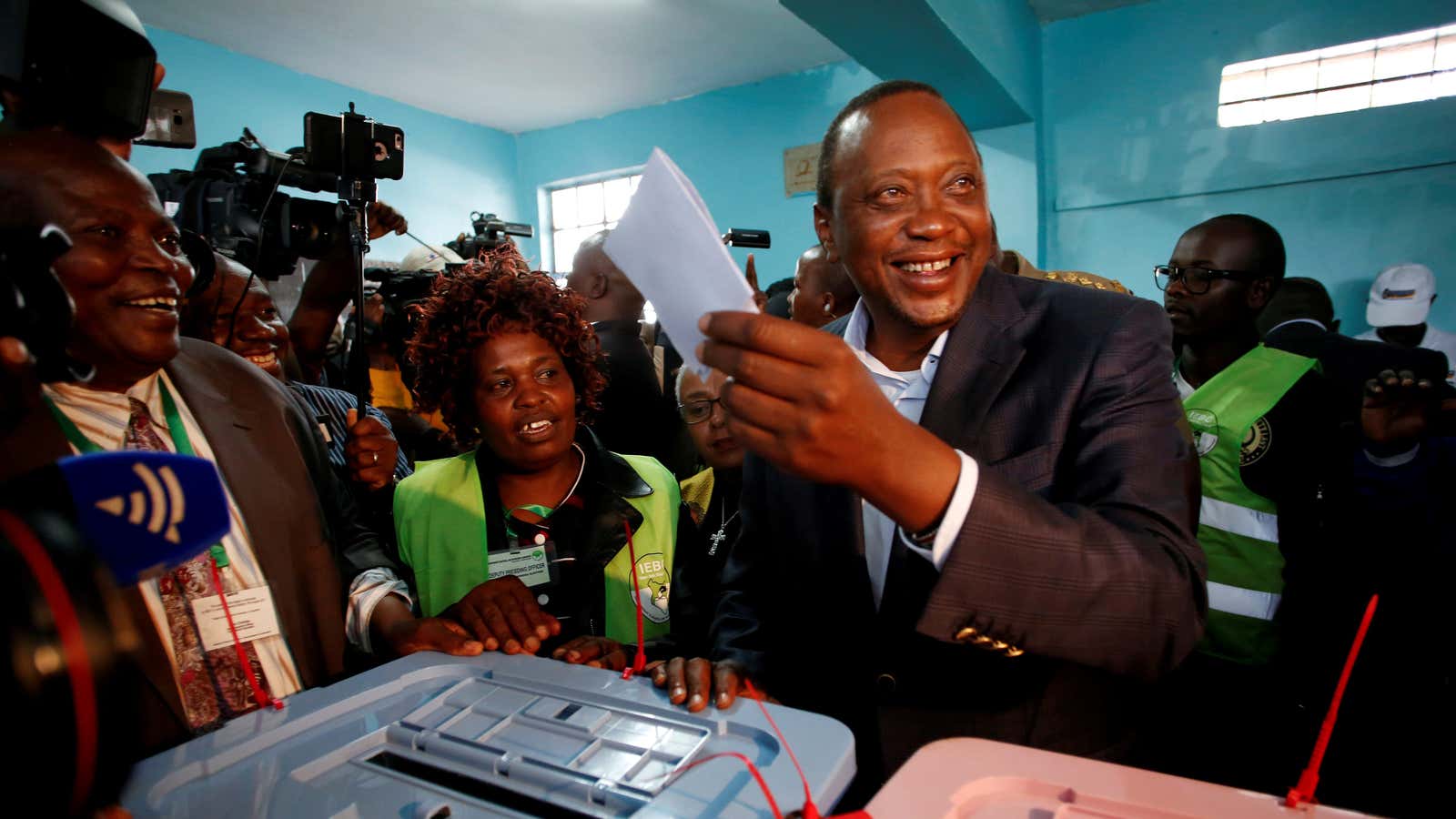Just days after Facebook suspended Cambridge Analytica for illegally harvesting data from 50 million profiles, executives from the firm have been caught on tape bragging about how they secretly ran campaigns in elections across the world—including Kenya’s 2013 and 2017 polls.
For over four months, an undercover reporter for the UK’s Channel 4 News posed as a fixer for a wealthy client hoping to get candidates elected in Sri Lanka, meeting with senior Cambridge Analytica officials in London. During the meetings, executives, among them CEO Alexander Nix, spoke about how the company operated, including offering bribes and entrapping public officials using sex workers.
During one of the meetings, the managing director of Cambridge Analytica’s political division, Mark Turnbull, speaks about the company’s role in Kenya’s elections. Turnbull boasts about working with president Uhuru Kenyatta’s campaign in the last two elections, helping provide research and targeted messaging. The company had previously acknowledged it worked for a “leading Kenyan political party” in 2013 to conduct and implement the largest political research project in East Africa, but refused to confirm or deny whether it had worked on Kenyatta’s campaign in 2017.
In response to the question “And what you have done in Kenya?” Turnbull responds by saying (video below, starting at 09:07), “We have rebranded the entire party twice, written their manifesto, done two rounds of 50,000 surveys… Then we’d write all the speeches and we’d stage the whole thing. So just about every element of his campaign.”
Cambridge Analytica is partly owned by the Mercer family and most closely linked to Robert Mercer, a hedge-fund billionaire in the US who supports conservative causes and candidates. By mining both online data and individual “psychometric” profiles, the firm personalizes political messaging to communicate with both a candidate’s supporters and undecided voters. Its controversial methods have been linked to both the Brexit vote in the UK and the Donald Trump election in the US.
In Kenya, its role became more apparent as attempts at misinformation to sway public opinion became more discernible during the last electioneering season. Fake news and attack ads against opposition candidates, besides sponsored propaganda posts, were shared on social media timelines. Facebook and its platform WhatsApp were key conduits of these false narratives, forcing the tech giant to place adverts in local newspapers and roll out an education tool providing tips on spotting false stories.
The stakes of Cambridge Analytica’s work in Kenya were elevated by the ubiquity of connectivity among the electorate: Mobile penetration among Kenya’s 44 million people is almost at 90%, and the country has one of the fastest mobile internet speeds in the world. But the intensity of the polls was also heightened by the ethnic tension that preceded and succeeded the voting days. In the violence that followed the August 2017 contested elections, 92 Kenyans lost their lives, according to the Kenya National Commission on Human Rights.
The opposition coalition challenged the results of the polls, citing the hacking of the voting system and the making of a “computer generated leadership.” And on Sept. 1, the supreme court sided with their argument, calling the re-election of Kenyatta “invalid, null and void.” Kenyatta was again re-elected in the repeat presidential polls held in October. But citing the nullification, Hillary Clinton drew a parallel between the US and Kenyan elections and lamented Cambridge Analytica’s “weaponization of information” to influence voters.
In a statement yesterday, Cambridge Analytica denied any wrongdoing, saying the Channel 4 News report was “edited and scripted to grossly misrepresent the nature of those conversations and how the company conducts its business.”
